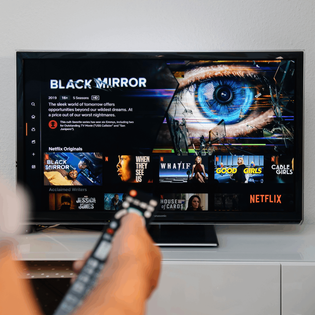Advertiser Disclosure
All About Cookies is an independent, advertising-supported website. Some of the offers that appear on this site are from third-party advertisers from which All About Cookies receives compensation. This compensation may impact how and where products appear on this site (including, for example, the order in which they appear).
All About Cookies does not include all financial or credit offers that might be available to consumers nor do we include all companies or all available products. Information is accurate as of the publishing date and has not been provided or endorsed by the advertiser.
Editorial Policy
The All About Cookies editorial team strives to provide accurate, in-depth information and reviews to help you, our reader, make online privacy decisions with confidence. Here's what you can expect from us:
- All About Cookies makes money when you click the links on our site to some of the products and offers that we mention. These partnerships do not influence our opinions or recommendations. Read more about how we make money.
- Partners are not able to review or request changes to our content except for compliance reasons.
- We aim to make sure everything on our site is up-to-date and accurate as of the publishing date, but we cannot guarantee we haven't missed something. It's your responsibility to double-check all information before making any decision. If you spot something that looks wrong, please let us know.
Gaming is a bandwidth-intensive activity. It requires a lot of data that is transferred from your gaming device to the game server. An internet speed of more than 20 megabits per second (Mbps) is often recommended for the majority of gaming.
Read on to learn more about how gaming impacts your internet, the minimum speeds for gaming, how to reduce lag, and the most reliable internet options and best VPNs for gaming.
Minimum download speeds for gaming
Latency in gaming
How to reduce lag
Best internet for gaming
Internet speed for gaming FAQs
Bottom line
Online versus offline gaming
Nowadays, games can often be played online or offline without the internet. They can be played on computers, tablets, gaming consoles, and even smartphones. However, only some of these gaming avenues require an internet connection to play. It’s especially true for gamers who enjoy streaming their gaming on sites such as Twitch and YouTube.
Online gaming requires the use of Wi-Fi and connecting to the internet in order to access and play the game. This allows players to interact with other individuals in real time, and players can compete against each other. During offline play, the game requires being downloaded directly onto the device to run the gaming software. The device then utilizes the device's local storage, graphics, input, and more to run the game.
Most offline games on the market today often focus on solo role-playing or strategy. Online gameplay usually includes a variety of games that require players to interact with others in real time. Many online games often include first-person and multiplayer games such as "Call of Duty" or "Need for Speed."
Minimum download speeds for gaming
The minimum internet speeds needed for the best gaming experience will genuinely depend on the type of gaming you want to play. Online gaming needs a higher minimum download speed than offline gaming may require. The device connected and used to participate in gaming activities can also impact your minimum download speeds.
The more devices you have connected to your Wi-Fi, the more likely your internet speeds will drop. For example, if you have 10 different devices connected with a slower internet speed, this can cause a Wi-Fi disruption within your home.
Some of these disruptions can cause streaming issues for your game, such as graphic problems, temporary game freezing or glitching, and even temporarily cause your internet to go offline.
Disruptions to your game are a common issue with lower download speeds. Your network and router can get overloaded with the input and output data if too many devices are connected to and actively used on the network while also attempting to play a game.
It’s valuable to note also that minimum download speeds for gaming do not just impact your experience while playing.
You’ll need more bandwidth and higher speeds to download large game files or updates faster. Gamers that have slower internet speeds should prepare ahead of time to download games or updates. Consider scheduling these large downloads overnight, or allow an hour or two for updates to download fully before gaming.
Upload speeds
Similar to download speeds, the higher the upload speed, the more seamless your gaming experience will be. However, your internet service can sometimes have upload speeds as low as 1/10th of the download speed. For instance, the upload speed for a 50 Mbps cable internet connection would be approximately 5 Mbps.
Upload speeds ultimately determine how much data you can transfer between another player's computer or gaming console and yours.
If your upload speed is low, it might take longer for the server to send their information to your computer. This could lead to game lag, freezing, or dropped connections during gameplay. Furthermore, if you stream through an online platform such as Twitch, your upload speed will affect how many people can tune in and watch without buffering issues.
Recommended internet speed by console
As a general rule of thumb, you will want to have at least 25 Mbps download speeds and 3 Mbps upload speeds for most gaming on PCs, Macs, or older gaming consoles. If you play on newer gaming consoles, play online games, or participate in live-stream gaming, you'll want to aim for 50 Mbps for downloads and 5 Mbps upload speeds.
These are the minimum recommended speeds most gamers will be comfortable with to play games online. However, it's also crucial to note that having this speed on its own may not be enough. You also need a reliable connection that doesn't drop out unexpectedly or suffer from slow loading times.
| Device | Recommended download speed | Recommended upload speed |
| Smartphone | 15 - 25 Mbps | 1 Mbps Per player |
| Computer (PC or Mac) | 15 - 25 Mbps | 1 Mbps Per player |
| Tablet | 15 - 25 Mbps | 1 Mbps Per player |
| Steam | 25 - 100 Mbps | 5 Mbps Per player |
| Twitch | 25 - 100 Mbps | 5 Mbps Per player |
| Standard gaming console | 25 - 100 Mbps | 5 Mbps Per player |
In the chart above, these recommendations are based on the type of devices that can be used while gaming. Also, the amounts stated within these charts are general recommended guidelines. It is important to remember that more interactive games designed for gaming consoles can also require higher download and upload speeds.
The chart below shows some of the most recent gaming consoles and their recommended download speeds per console manufacturer and model. These are recommended guideline amounts to ensure more optimal online gaming quality.
| Gaming console | Recommended download speed | Recommended upload speed |
| Nintendo Switch | 40 - 60 Mbps | 1 Mbps |
| Nintendo Wii U | 40 - 60 Mbps | 1 Mbps |
| PlayStation 4 | 25 Mbps | 3 Mbps |
| PlayStation 5 | 50 - 100 Mbps | 5 Mbps |
| Xbox One | 9 - 40 Mbps | 3 Mbps |
| Xbox X | 50 - 100 Mbps | 5 Mbps |
The most critical thing to consider is whether your current internet connection speed supports the type of game you want to play. You can always perform a download speed test on websites like Speed Test to check where your download speeds land.
You'll need to upgrade your broadband plan or switch providers to speed up your internet if you don't have fast enough download and upload speeds in order to ensure you have a better gaming experience.
Latency in gaming
The terms latency, lag, and ping are often used interchangeably in computing and gaming. However, they are similar, but not the same.
Latency is the time it takes for a packet of data to travel between two endpoints. Latency is often the response time of data between your device and the server. Aiming for reasonable gaming latency depends on the quality of your internet connection.
Conversely, ping is measured in milliseconds and is the signal that’s sent out between the player inputting a command and the server responding to it.
For example, if you pressed ‘A’ on your controller to select an action in your game, a good ping would mean that your character would take the action promptly after you pressed the button.
A high ping causes high latency which can create a slow response time or delay, also known as a lag. To simplify how all three work together:
- Ping is the signal.
- Latency is the response.
- Lag is the result of a delayed response.
An optimal latency depends on the quality of your internet connection and works hand in hand with ping. When playing multiplayer games online, it's important your internet connection type provides low latency so your controller input can be transmitted quickly and accurately.
How to reduce lag
When playing both single-player and multiplayer games online, it's important that your internet connection has low latency so your controller input can be transmitted quickly and accurately. The type of internet you use can also impact latency and result in increased lag.
The average latency of DSL and cable connections is roughly 20 milliseconds, making them suitable for gaming. In comparison, satellite internet commonly has a much higher latency of around 200 milliseconds, which makes it problematic for online gaming.
If you've been experiencing high latency and lag impacting your gameplay, here are some methods to help decrease it:
- Using a wired connection, such as an Ethernet cable, usually delivers a faster and more reliable connection than a Wi-Fi connection.
- Check your router to see whether it needs to be reset, restarted, or repositioned closer to your console, or if you need a Wi-Fi extender to boost your signal.
- Secure your network and free up your bandwidth by closing some apps, web pages, or connected devices while gaming.
- Run a speed test to determine your download, upload, and ping results before gaming.
If these steps don't work for you, consider upgrading to broadband internet service. This enables you to get faster download and upload speeds, plus lower ping and latency. You can also opt to hardwire your gaming device or console instead of just using a Wi-Fi connection.
Best internet for gaming
The best internet speed for gaming is fast enough to eliminate lag, ping, and download/upload response times. It's also important the connection you choose is stable so you don't encounter any connectivity issues during your session.
If you're hoping to improve your gameplay, we recommend upgrading from a slower internet service provider (ISP) to one with a higher download speed. One note: you may not need the fastest internet plan and might be able to save some money by finding a happy medium in terms of internet speed.
Some popular internet providers available in the U.S. include:
5 best high-speed internet providers for gamers
| Provider | Max download speed | Connection type |
| AT&T Fiber | 5,000 Mbps (5 Gbps) | Fiber |
| Comcast Xfinity | 1,200 Mbps (1.2 Gbps) | Cable/fiber |
| Google Fiber | 2,000 Mbps (2 Gbps) | Fiber |
| Spectrum | 1,000 Mbps (1 Gbps) | Cable |
| Verizon Fios | 940 Mbps | Fiber |
Gamers have often experienced less lag after switching to a better internet type and provider. For instance, switching from a satellite internet provider to fiber-optic can dramatically produce more positive results.
However, it is notable to remember that, though an internet provider advertises its speeds in Mbps, that does not always imply they will necessarily deliver on those promises. Some ISPs have been known to throttle internet speeds in special scenarios where there is congested internet traffic in your local area.
When choosing an ISP, consulting reviews and options provided in your area can be valuable before signing up for a provider.
Best VPNs for gaming
Although virtual private networks (VPNs) are known to slow down internet speeds, they can actually help prevent ISP throttling. VPNs encrypt your internet traffic and keep it private, so your ISP would be unaware of the websites or services you're using.
We've compiled a list of the best VPNs to help with your internet speeds while gaming:
-
VPN technology offering stability and speed
-
Unlimited simultaneous connections
-
Works with Netflix and other streaming services
-
Headquarters in Nine Eyes Alliance
Internet speed for gaming FAQs
Does faster internet improve gaming?
The speed of your internet connection can make a big difference in your online gaming experience. Faster internet speeds often improve download and upload rates. Additionally, they will reduce your game ping rate and latency, which allows you to make every millisecond count while playing.
Is 50 Mbps good for gaming?
Generally, a 50 Mbps download speed is good enough for the majority of online gaming. This is considering gaming as a single-player in the household. If you want to stream your game online or participate in a multiplayer game, you will most likely need faster internet speeds more than 50 Mbps.
Is 100 Mbps good for gaming?
If you're looking for a higher minimum download speed, 100 Mbps is a great option. This speed is great for downloading games from Steam, Twitch, Xbox Live, and PlayStation Network. You can also easily stream games in HD using this level of connection.
Bottom line
Online gaming has become increasingly popular over the past few decades. It’s allowed countless players to connect and interact more than ever before. However, with the increase in gaming, so has the need for greater internet speeds. There are numerous factors that play into how your internet speed is impacted by gaming.
Ideally, higher internet speeds will result in a better overall gaming experience. If you're looking for an optimal gaming experience, whether single-player or multiplayer, speeds greater than 50 Mbps will suit you well.
Additionally, if you opt to stream or game live, aim for faster speeds that equal more quality graphics and play. Shopping around for the best internet for gaming can provide the most optimal experience to fit your gaming needs. We've also compiled a list of the best VPNs for gaming if you wish to secure your privacy while you game.
-
High-quality VPN offering safety and speed
-
Loads of servers for multiple connection options
-
Works with popular streaming services, including Netflix
-
Too many confusing plans






